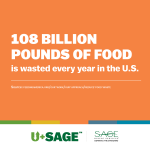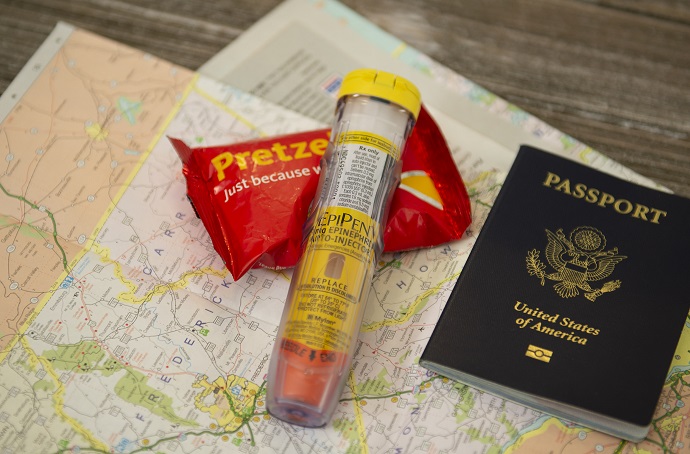Roughly 50 million people in the U.S. travel over the Thanksgiving holiday, and more than 15 million people in the U.S. have with food allergies. That means this holiday season, there are a lot of Epi-Pens® going through security.
And though there’s comfort in these numbers, people with food allergies and their family members are never fully relaxed or off duty when traveling. They’re well aware of the fact that most fatal food allergic reactions are triggered by food consumed outside the home.
If traveling with food allergies is new to you, don’t worry—with some information and preparation, you can have a safe and healthy trip. Here are some tips:
Give Everyone a Heads Up
If you’re visiting friends or relatives who might not fully understand the severity of food allergies, a little information can go a long way. Let’s face it--the holidays are all about food, and some people might get offended if you don’t eat what they prepared, or if you ask for meals to be prepared separately. Even worse, they might not think that just one bite of a cookie can be life-threatening. Consider sending them a video or an article that shows how food allergies are lethal. Here’s the video we share: https://vimeo.com/226972008.
Documentation and Prescriptions
It can’t hurt to have a letter signed by your doctor explaining your need to carry medications and your own food. A few weeks before your trip, take stock of your medications and get any refills you might need. If traveling for an extended period of time, you might want to bring a copy of your prescriptions with you.
Planning
Map out some grocery stores or restaurants that carry or serve safe foods. Know where the closest hospitals and medical centers are.
Making Reservations
If you’re flying, read the airline’s allergen policy. If you have a peanut or tee nut allergy, you might want to choose an airline that doesn’t serve them. If you can’t get the information you need, call the airline and ask to speak with someone who can help you.
Allergic Living has put together a comprehensive list of airline policies here. For each airline, there’s information about buying tickets, in-flight accommodations (for example, if announcements are made on flight about passengers with food allergies, if the crew asks passengers to refrain from eating certain foods, if the airline allows pre-boarding to wipe down surfaces), snack policies, gluten-free options, and emergency protocols.
Amtrak’s food allergy policies can be found here.
Packing
Bring extra medications if possible. Pack wipes and snacks in carry-ons. If there’s extra room in your luggage, bring some safe, packaged foods. If you plan on taking day trips, pack bags you can use to carry your medications and snacks.
Traveling
Alert crew members. Wipe down food trays and seats, as well as surfaces on rental cars, car seats, and strollers. Pay attention to spills and to what people are eating around you.
Accommodations
Wipe down hotel table and kitchenette surfaces and appliances. Consider washing all dishes before you use them.
Visiting Friends’ and Families’ Homes
Don’t forget your Epi-Pen® and other medications. Check food labels closely. Be careful with small children and snacks in candy dishes or trays, and check-in frequently with food-allergic children to make sure they’re okay.
Last but Not Least
Give yourself a pat on the back. Traveling during the holidays is tough enough without food allergies—you’re doing an amazing job!
Here’s to a happy and healthy holiday season!









